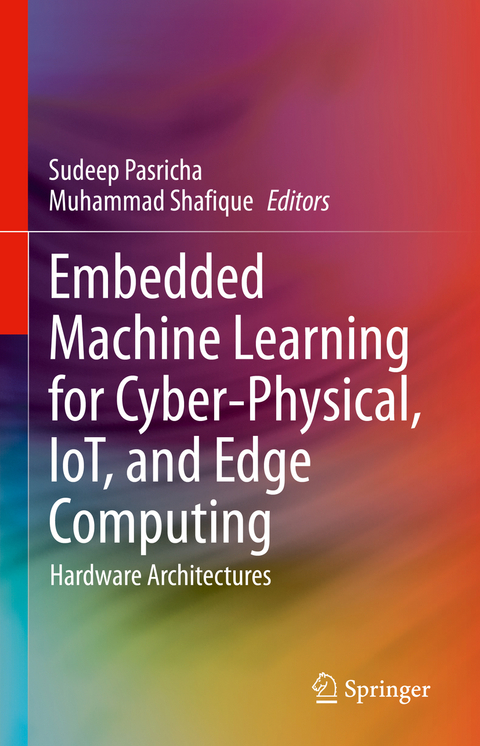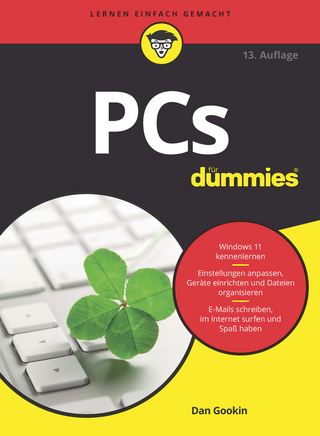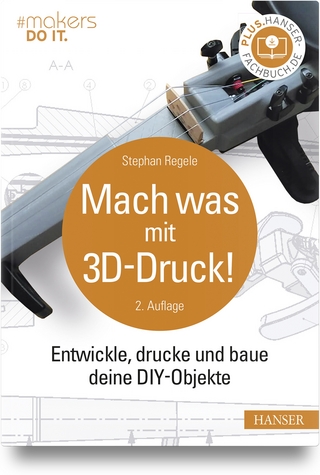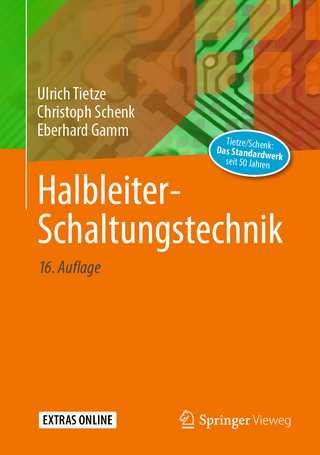
Embedded Machine Learning for Cyber-Physical, IoT, and Edge Computing
Springer International Publishing (Verlag)
978-3-031-19567-9 (ISBN)
This book presents recent advances towards the goal of enabling efficient implementation of machine learning models on resource-constrained systems, covering different application domains. The focus is on presenting interesting and new use cases of applying machine learning to innovative application domains, exploring the efficient hardware design of efficient machine learning accelerators, memory optimization techniques, illustrating model compression and neural architecture search techniques for energy-efficient and fast execution on resource-constrained hardware platforms, and understanding hardware-software codesign techniques for achieving even greater energy, reliability, and performance benefits.
Sudeep Pasricha is a Walter Scott Jr. College of Engineering Professor in the Department of Electrical and Computer Engineering, the Department of Computer Science, and the Department of Systems Engineering at Colorado State University. He is Director of the Embedded, High Performance, and Intelligent Computing (EPIC) Laboratory and the Chair of Computer Engineering. Prof. Pasricha received the B.E. degree in Electronics and Communication Engineering from Delhi Institute of Technology, India, in 2000, and his Ph.D. in Computer Science from the University of California, Irvine in 2008. He joined Colorado State University (CSU) in 2008. Prior to joining CSU, he spent several years working in STMicroelectronics and Conexant Inc. He has received funding for his research from various sponsors such as the NSF, SRC, AFOSR, ORNL, DoD, Fiat-Chrysler, and NASA. He has co-authored two books, contributed to several book chapters, and published more than 250 research articles in peer-reviewed conferences, journals, and books. He has been part of panels, keynotes, and also organized special sessions and tutorials on his research areas at premier conferences. He is a Senior Member of the IEEE (Computer Society) and Distinguished Member of the ACM. Prof. Pasricha's research broadly focuses on software algorithms, hardware architectures, and hardware-software co-design for energy-efficient, fault-tolerant, real-time, and secure computing. These efforts target multi-scale computing platforms, including embedded and Internet of Things (IoT) systems, cyber-physical systems, mobile devices, and datacenters. Prof. Pasricha has received 7 Best Paper Awards at the ACM/IEEE NOCS 2018, ACM GLSVLSI 2018, ACM SLIP 2016, ACM GLSVLSI 2015, IEEE AICCSA 2011, IEEE ISQED 2010 and ACM/IEEE ASPDAC 2006 conferences and several Best Paper nominations. Other notable awards include: the 2019 George T. Abell Outstanding Research Faculty Award, the 2016-2018 University Distinguished Monfort Professorship, 2016-2019 Walter Scott Jr. College of Engineering Rockwell-Anderson Professorship, 2018 IEEE-CS/TCVLSI mid-career research Achievement Award, the 2015 IEEE/TCSC Award for Excellence for a mid-career researcher, the 2014 George T. Abell Outstanding Mid-career Faculty Award, and the 2013 AFOSR Young Investigator Award. Prof. Pasricha is currently the Vice Chair of ACM SIGDA and a Senior Associate Editor for the ACM Journal of Emerging Technologies in Computing (JETC). He is an Associate Editor for the ACM Transactions on Embedded Computing Systems (TECS), IEEE Transactions on Computer-Aided Design of Integrated Circuits and Systems (TCAD), IEEE Consumer Electronics (CM), and IEEE Design & Test of Computers (D&T). He also serves as the Chair of the steering committee of IEEE Transactions on Sustainable Computing (TSUSC). He is currently or has been an Organizing Committee Member of several IEEE/ACM conferences such as DAC, ESWEEK, ICCAD, GLSVLSI, NOCS, RTCSA, etc. He has served as the General Chair for various IEEE/ACM conferences such as NOCS, HCW, IGSC, iSES, ICESS, etc.; and as Program Chair for CODES+ISSS, NOCS, IGSC, iNIS, VLSID, HCW, DAC PhD Forum, ICCAD Cadathlon, etc. He is also in the Technical Program Committee of several IEEE/ACM conferences such as DAC, DATE, ICCAD, ICCD, NOCS, etc. He holds an affiliate faculty member position at the Center for Embedded and Cyber-Physical Systems at UC Irvine. He has also received multiple awards for professional service, including the 2019 ACM SIGDA Distinguished Service Award, the 2015 ACM SIGDA Service Award, and the 2012 ACM SIGDA Technical Leadership Award.
Introduction.- Efficient Hardware Acceleration for Embedded Machine Learning.- Memory Design and Optimization for Embedded Machine Learning.- Efficient Software Design of Embedded Machine Learning.- Hardware-Software Co-Design for Embedded Machine Learning.- Emerging Technologies for Embedded Machine Learning.- Mobile, IoT, and Edge Application Use-Cases for Embedded Machine Learning.- Cyber-Physical Application Use-Cases for Embedded Machine Learning.
| Erscheinungsdatum | 04.10.2023 |
|---|---|
| Zusatzinfo | XIV, 412 p. 456 illus., 165 illus. in color. |
| Verlagsort | Cham |
| Sprache | englisch |
| Maße | 155 x 235 mm |
| Gewicht | 759 g |
| Themenwelt | Informatik ► Weitere Themen ► Hardware |
| Technik ► Elektrotechnik / Energietechnik | |
| Schlagworte | Hardware-Aware Neural Architectural Search • Machine learning edge computing • Machine learning embedded systems • Machine learning IoT • Smart Cyber-Physical Systems |
| ISBN-10 | 3-031-19567-1 / 3031195671 |
| ISBN-13 | 978-3-031-19567-9 / 9783031195679 |
| Zustand | Neuware |
| Haben Sie eine Frage zum Produkt? |
aus dem Bereich


